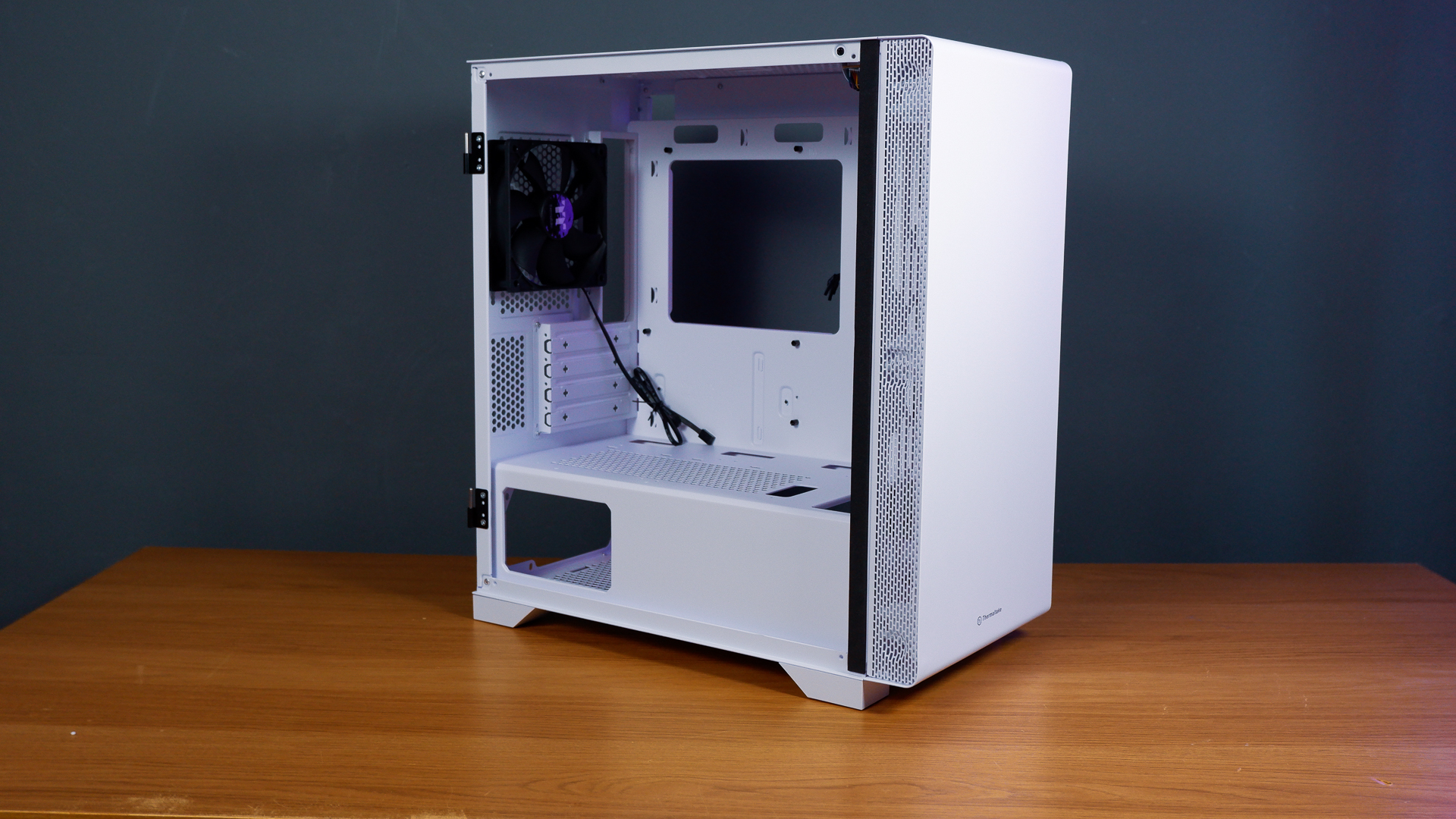Mass Effect Legendary Edition: everything you need to know about the remasters
Your guide to deciding whether or not to jump into the three-game sci-fi epic.
Nearly a decade after the original trilogy wrapped up in 2012, the Mass Effect Legendary Edition is now out to remaster all three games. BioWare's sprawling space trilogy was the beginning of a new era for the studio that's now nearly synonymous with its two big RPG series.
Whether you've played Mass Effect too many times or no times at all, it's definitely the freshest and most convenient way to snag all three games. From its new PC settings to updated visuals, to modern system requirements, we've rounded up everything you'll want to know about the remastered Legendary Edition.
What's the Mass Effect Legendary Edition release date?
Mass Effect Legendary Edition released May 14, 2021 on both Origin and Steam.
What's in the Legendary Edition?
Mass Effect Legendary Edition includes the original trilogy remastered plus "over 40 DLC including all story content, promo weapons, armors and packs available from the start." However, it does not include a holographic training mode, the Pinnacle Station DLC, because the source code was lost, and it's so minor it wasn't considered worth rebuilding from scratch. As the LE doesn't include Mass Effect 3's multiplayer mode (read on), it obviously doesn't include any of the multiplayer DLC either.
The game has a unified front-end, which is to say a menu screen where you choose between the three games, and of course your progress and decisions carry over into the sequels as they always did.
The three games are visually remastered for 4K, HDR, and DX11, with "tens of thousands" of up-ressed textures, enhanced models, lighting, shaders and VFX. It will support high refresh rate and ultra-wide (21:9) displays on PC. There are also improvements to depth-of-field, anti-aliasing, and a 240 fps framerate cap.
There's a universal character creator across the trilogy with "a lot" more customisation options, and unified settings options across the three titles on PC.
Keep up to date with the most important stories and the best deals, as picked by the PC Gamer team.
Probably the greatest relief in BioWare's demo was when a lift ride was shown on the PC version. This was in the Citadel, and ME: LE took 14 seconds to load the area where the original game took 52 seconds.
On that note, the original games included squad dialogue and news reports to allay the wait times in lifts. If you want to stick around and hear that, you can choose not to skip the loading.
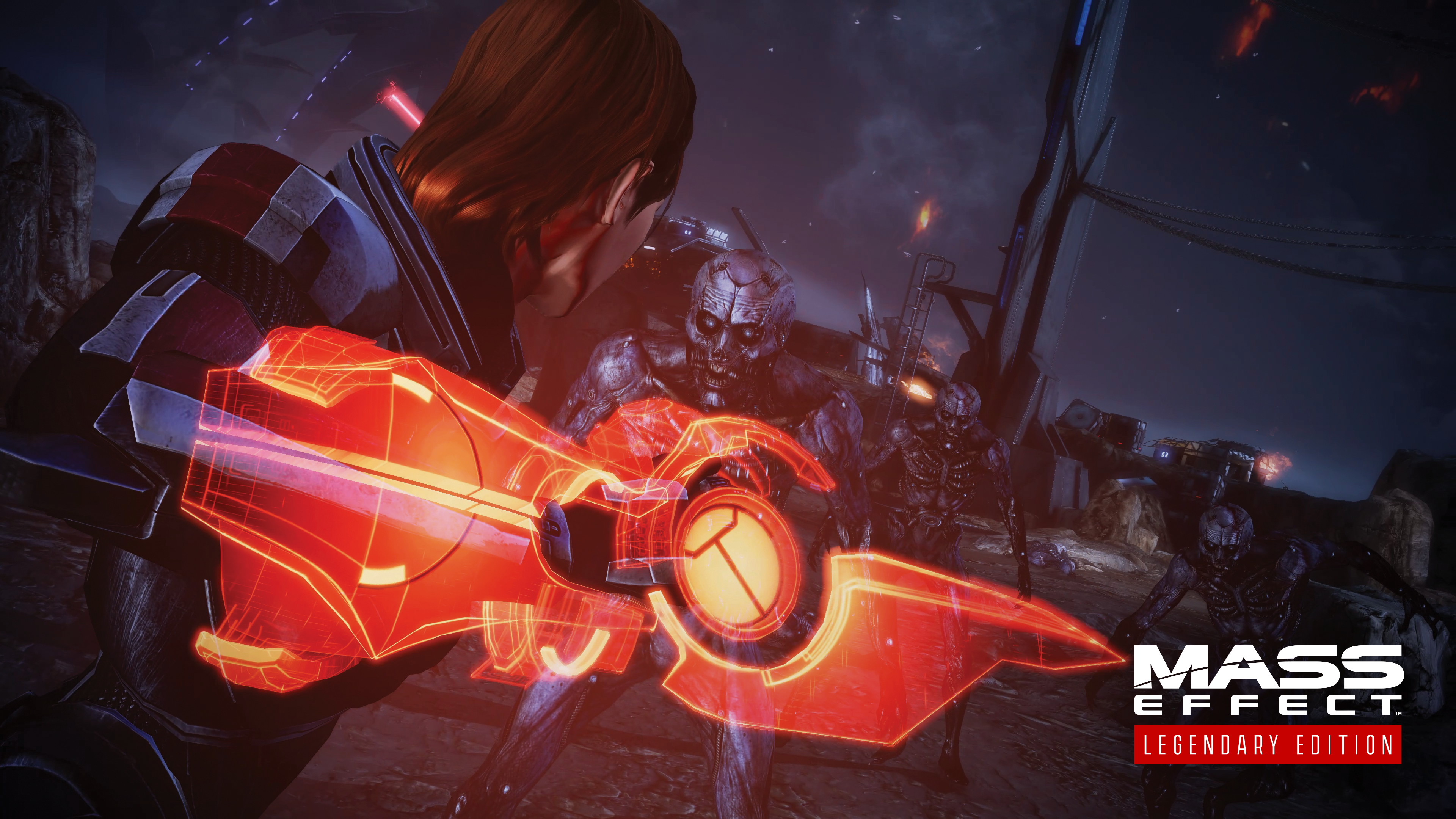
Is Mass Effect Legendary Edition worth it?
Now that the remasters are out, players are putting them to the test: Many of the Steam user reviews are positive so far, although there are some technical complaints. We're still working on an in-depth technical analysis and review, so we'll have more to say soon.
Is it a remake, or a remaster?
Erm... it's complicated. The original Mass Effect game has received a more substantial touching-up than Mass Effect 2 and 3, primarily around the combat system and UI. This makes sense, as the first game was more of an RPG and the sequels greatly improved the combat: so Mass Effect 1 is receiving something of a rework.
The game's UI and various interfaces have been overhauled, and combat and exploration brought in-line with the sequels' improvements: better aiming, squad controls, team AI, and camera positioning. On the last point, for example, you'd commonly take cover in that game and get a brief view of the interior of Shepard's skull: no more. Finally, and perhaps most-wanted of all, the handling of the Tonka-like Mako surface vehicle has been overhauled. I always hated the way this thing drove, so good news.
OVERHEAT. Core mechanics were maintained. But... camera, input/controls, aiming, AI, cover, weapon-balance, squad control, boss encounters, Mako handling & aiming - all much improved in ME1. Oh, and a totally updated HUD. https://t.co/niRWbVF0L6February 3, 2021
That aside, there are no big changes to the adventure itself. At one point there were discussions about pursuing a more ambitious route, technologically speaking, but that would have put BioWare in a position where, essentially, the games were being rebuilt from scratch.
"One of the first questions is, if we're remastering this, what does that look like, and what does it mean to us," says Mac Walters, Mass Effect Legendary Edition's project director and a longtime BioWare developer. "It quickly became this archaeological discovery, pulling things out [...] one of the jokes I'd make, we'd talk about restoring a beautiful beloved car, but then it quickly turned into sure, if that car was buried in cement, and every time you tried to clear off some of the cement you were worried about dinging the paint or ripping off a mirror..."
"Quite early we spoke to people and Epic and asked what would this look like if we took it into Unreal Engine 4, and it quickly became clear that that jump would really change fundamentally what the trilogy was, and how it felt, how it played. An example would be the Unreal Engine 3 scripting language Kismet, there's no copy-paste equivalent to that, so every moment, every scene would essentially have to be redone from scratch and we'd take away the essence of what the trilogy was. So what this was about was fidelity, taking off some of the edges people would expect."
As for changes to the narrative and character interactions, Walters says "we considered things like story and character but that's so much a part of your experience and memory of this that we took that off the table pretty quick."
However, he's subsequently gone on to say that some aspects have been tweaked, such as Mass Effect 2's somewhat unforgiving morality system.
We actually did a couple things in ME2 to make morality checks a bit less strict/frustrating. @BrenonHolmes specifically did those things... https://t.co/KSGFkhtlAGFebruary 3, 2021
What about Mass Effect 3's multiplayer mode?
Nope. "We looked at what it would take to do that," says Mac Walters, project director. "What do we do with cross-play, what do we do with people playing multiplayer now, how do we honor that, bring them in, bridge that gap, and of course these aren't insurmountable challenges [...] but when you looked at the amount of effort that it was gonna take to do that, it was easily commensurate if not greater than for example uplifting all of ME1.
"And I think our focus really was on the singleplayer experience and at some point we had to just draw the line... there was a lot of, I love ME3 multiplayer, like I say people are still playing it today, but ultimately I think the product, the overall ME: LE is a better representation of the original trilogy because we're able to focus on those singleplayer elements."

What about cut content?
"No there isn't any [additional content]," says Walters. "Though at the same time when you look at all the work done [...] I feel that entire first game feels fresh and new.
"We had looked at whether there was stuff on the cutting room floor we could bring in, and a lot of times that isn't really in a state where you can just, y'know, resurrect it and use it. You're rebuilding it from scratch, and at that point you're diverting actual effort from the remastering of everything else... so decisions have to be made along those lines."
On that note, the ending of the trilogy will remain that of Mass Effect 3: Extended Cut, something of a controversial topic at the time: fan reaction to the 'original' ending was so vociferous that BioWare was seen by some as having capitulated to the mob by changing things.
"The Extended Cut will be the experience for everyone playing ME: LE," says Walters. "To me the Extended Cut was really that opportunity to add a little more love, a little more context around the ending, so to me that's canon."
Here's a look at the Mass Effect photo mode
How better to appreciate the new visuals than with a photo mode? BioWare have shown off some screenshots taken with Mass Effect LEgendary Edition's photo mode which you'll be able to open from the pause menu. Based on the couple shots that were shared, we're expecting you'll have settings like adjustable focal length, aperture settings, filters, character controls, and other features.
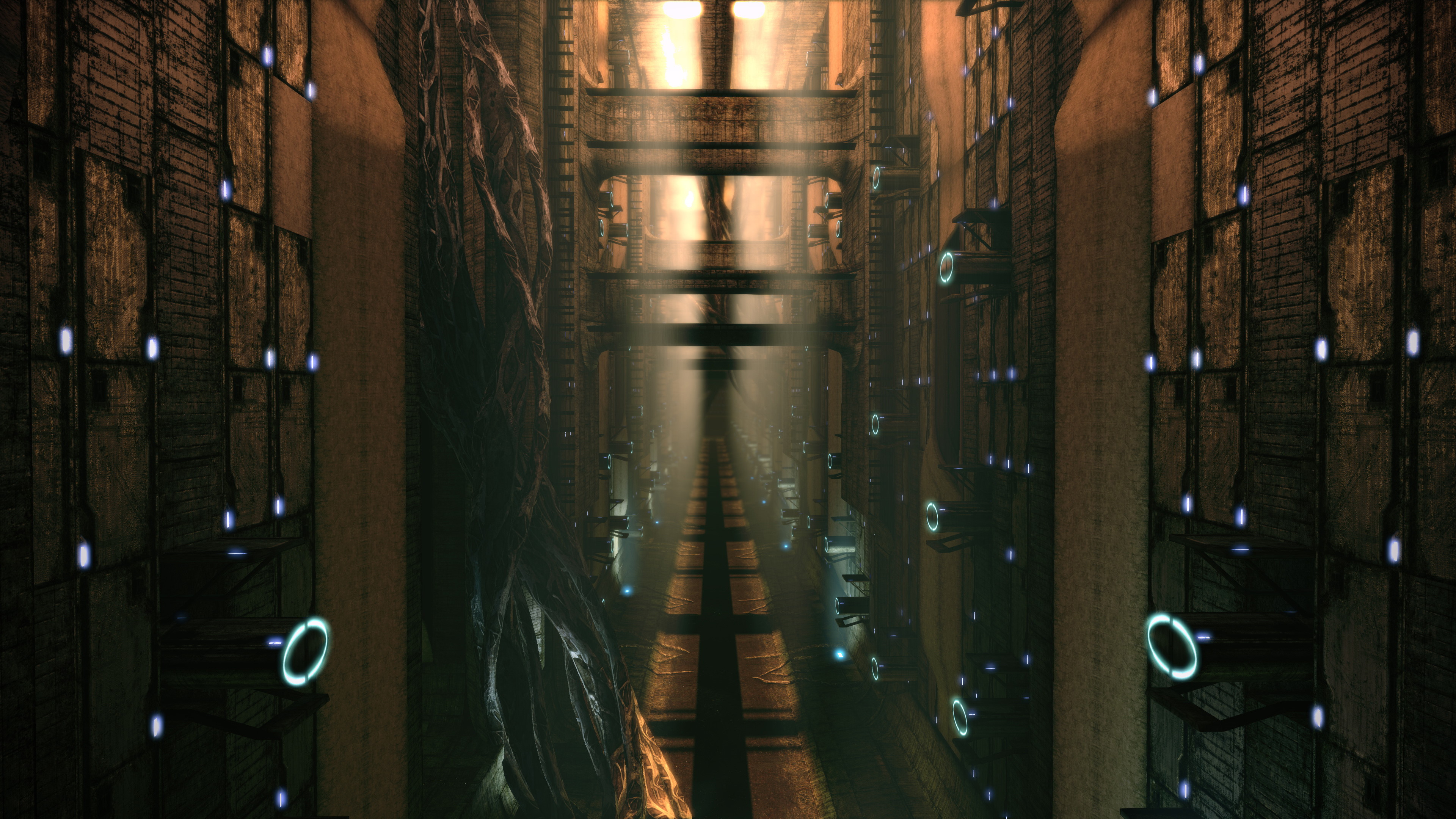
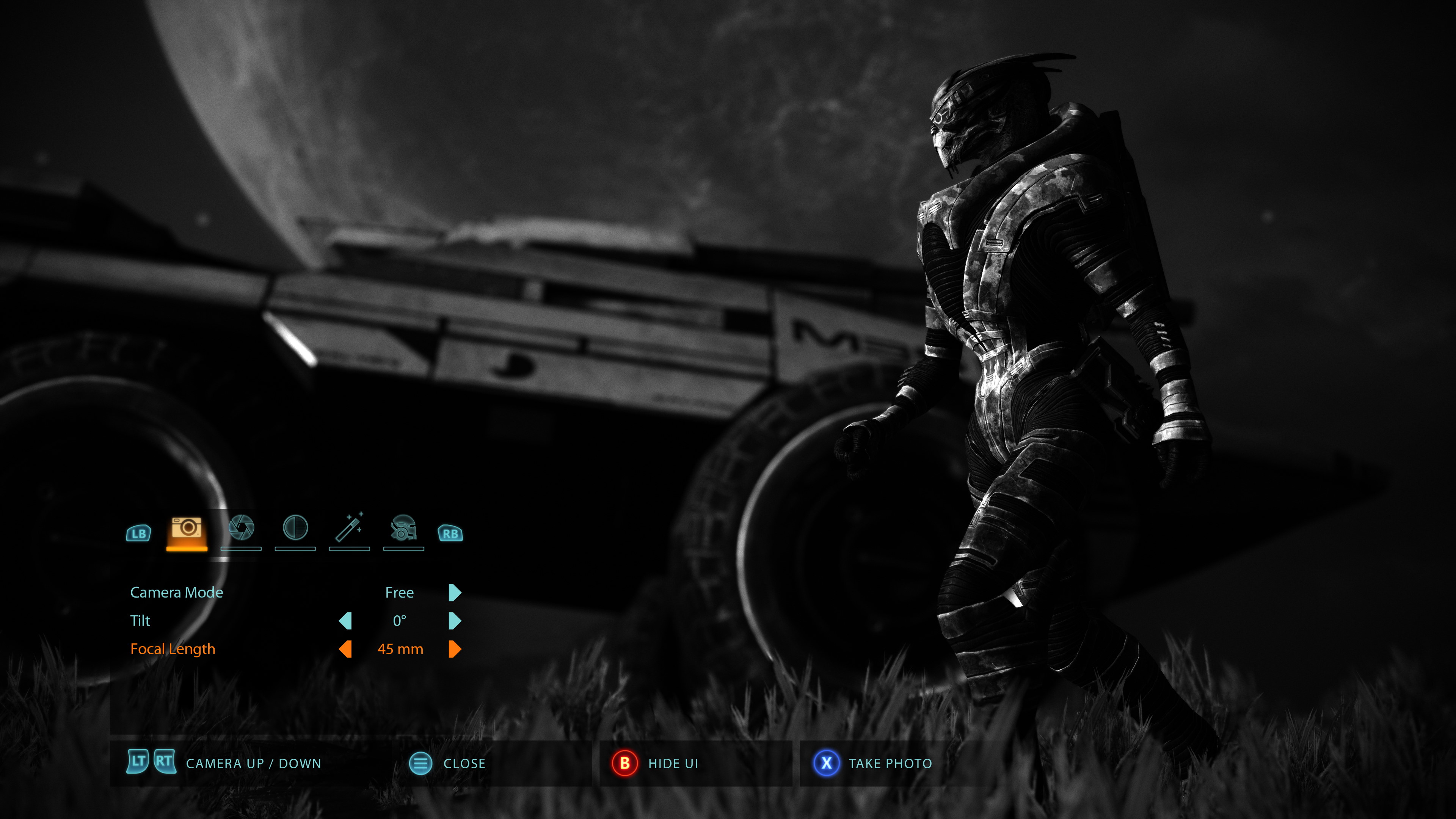
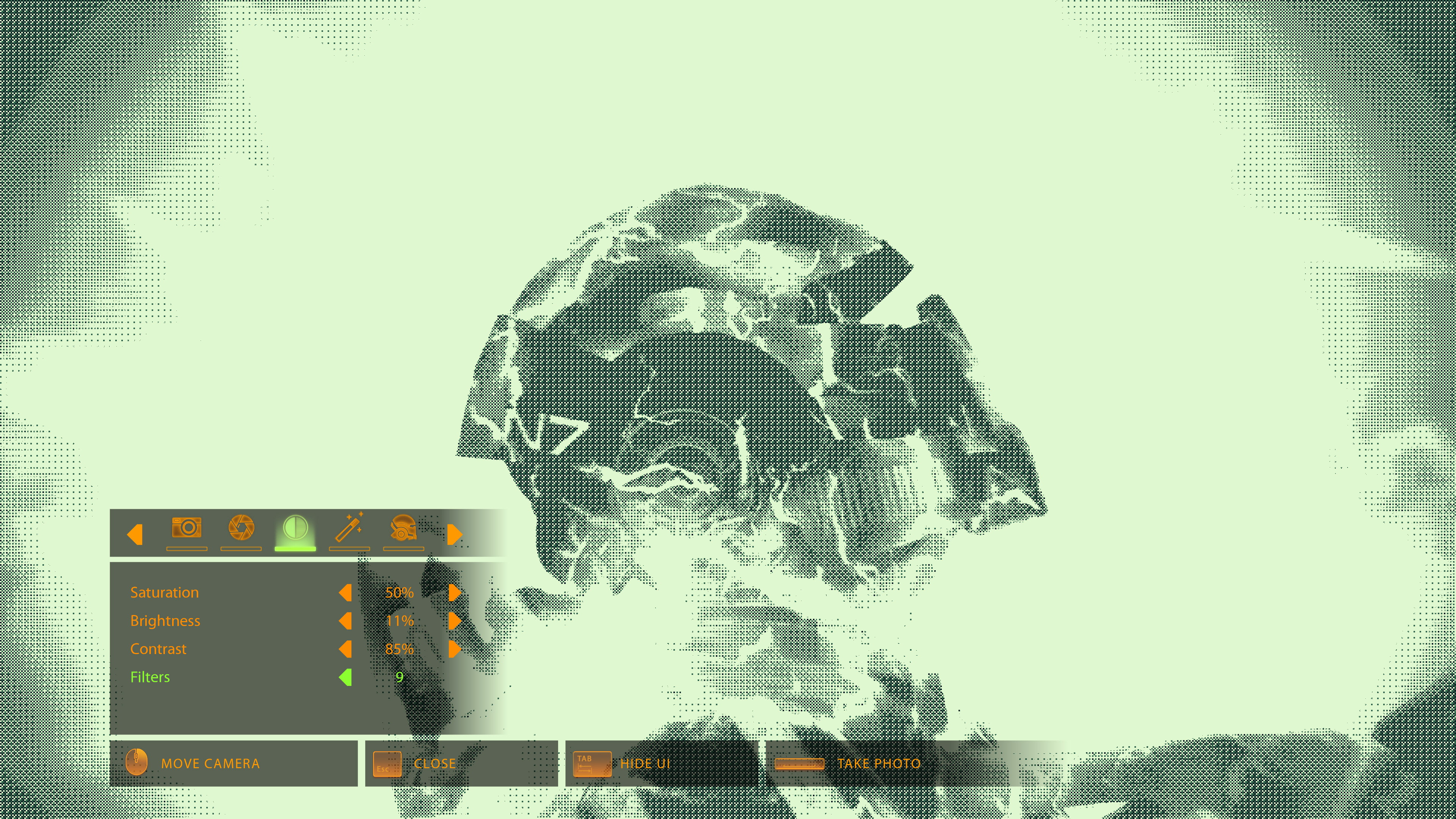
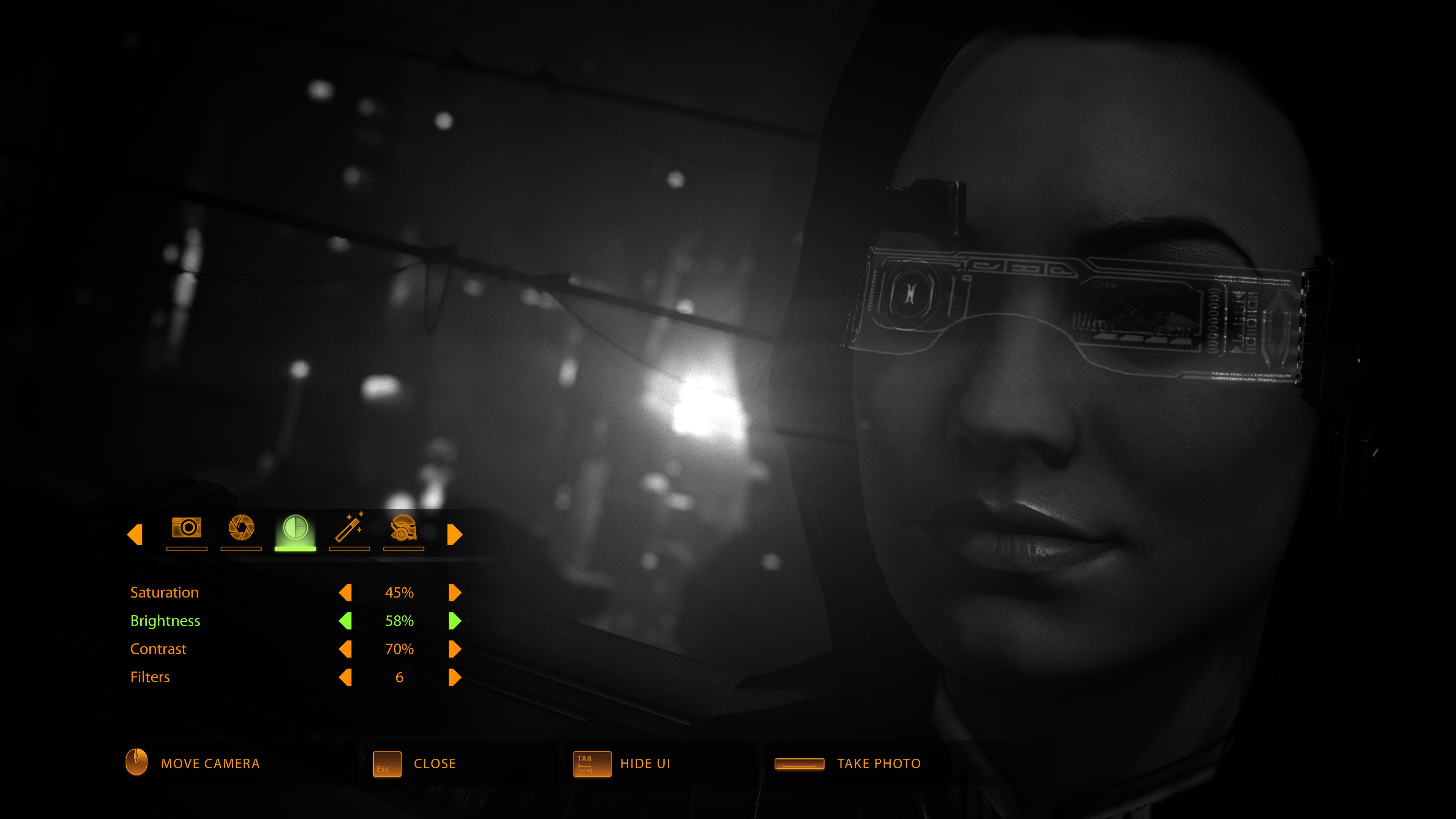
Hit me with the system specs
Right you are squire. Our full rundown is here, and it's not too demanding, though you will need 120 GB of storage.
Minimum requirements for Mass Effect: Legendary Edition
- OS: 64-bit Windows 10
- Processor: Intel Core i5 3570 or AMD FX-8350
- Memory: 8 GB RAM
- Graphics: GPU: NVIDIA GTX 760, AMD Radeon 7970 / R9280X GPU RAM: 2 GB Video Memory
- DirectX: Version 11
- Storage: 120GB available space
Recommended requirements for Mass Effect: Legendary Edition
- OS: 64-bit Windows 10
- Processor: Intel Core i7-7700 or AMD Ryzen 7 3700X
- Memory: 16 GB RAM
- Graphics: GPU: NVIDIA GTX 1070 / RTX 200, Radeon Vega 56, GPU RAM: 4 GB Video Memory
- DirectX: Version 11
- Storage: 120GB available space
How much better-looking are we talking?

The development of Mass Effect Legendary Edition's look began with AI upscaling before the art team then began to look at the assets and add the human touch. "We knew we wanted to increase the resolution on all the textures across the trilogy," says Kevin Meek, environment and character director, "so like all the VFX, UI, environment art, character art, every single texture, we hit right away with two main changes: first we increased the caps that engine places on the texture sizes, second we ran all of the original uncompressed source art through an AI up-res program, along with some custom batch tools [...] resolutions increased at least to four times if not 16 times, potentially, if they had been previously authored at a higher resolution."
After this the team began targeting improvements manually, using the blindingly simple tactic of making artists play through the levels normally (as opposed to using an editor), and made the call as to what was important to focus on in any given area.
Meek showed what he called a 'baseline' video that had previously been used as an internal presentation, demonstrating realtime reflections, much-improved surfaces on things like eyes, the enormous improvements to NPC textures, and so on. Unfortunately these 4K textures were being demonstrated on a 1080p stream but, that caveat aside, the differences between the older Garrus model, for example, and the shiny new one leap out: the lines on his face are deeper, the damage to his armour craters more into the material, his holo-eye's reflections are more 'realistic.'
The game being on UE3 precludes tech like ray-tracing, but what was that about realtime reflections? "Sticking with Unreal 3 there's a whole different branch of opportunity because it's such an old engine," says Meek. "It's called forward rendering rather than deferred rendering, it opens up this opportunity for us where we can actually just render the scene twice, and what we've done is if in ME1, 2 or 3 if there's a really reflective surface and the performance supports it we can actually add a second camera to the world, and render a texture reflection on surfaces, so you will see realtime dynamic reflections [...] it does everything we need it to do quality-wise without us having to deep-down fundamentally change rendering threads and stuff like that."
Meek went on to discuss getting deep into rock textures, which I'll spare you. One last tidbit is that, once the team had made basic improvements, the art director of the original trilogy, Derek Watts, was roped-in to help reach the LE's final look.

Character customisation
Kevin Meek spoke briefly about one of the trilogy's missteps, the late introduction of a default or what BioWare calls the 'iconic' look for female Shepard in Mass Effect 3 (players who had created their own FemShep in the first two games were given the option to continue with that, or change to the new look). The LE introduces this default FemShep from the start of the trilogy, should players wish to use that model, alongside a raft of improvements to the character model's details.
In addition, the character customisation options have been expanded with more hair, makeup and skin tone options, and persist across all three titles. Perhaps most surprising is that it retains the character code functionality later introduced in the trilogy, which Walters says has a few kinks but more-or-less works.
We're working to make it as compatible as possible (we even added the code importer to ME1). But due to improvements and new options in character creator, some codes are currently working better than others. https://t.co/N2Y4LbHxxFFebruary 3, 2021
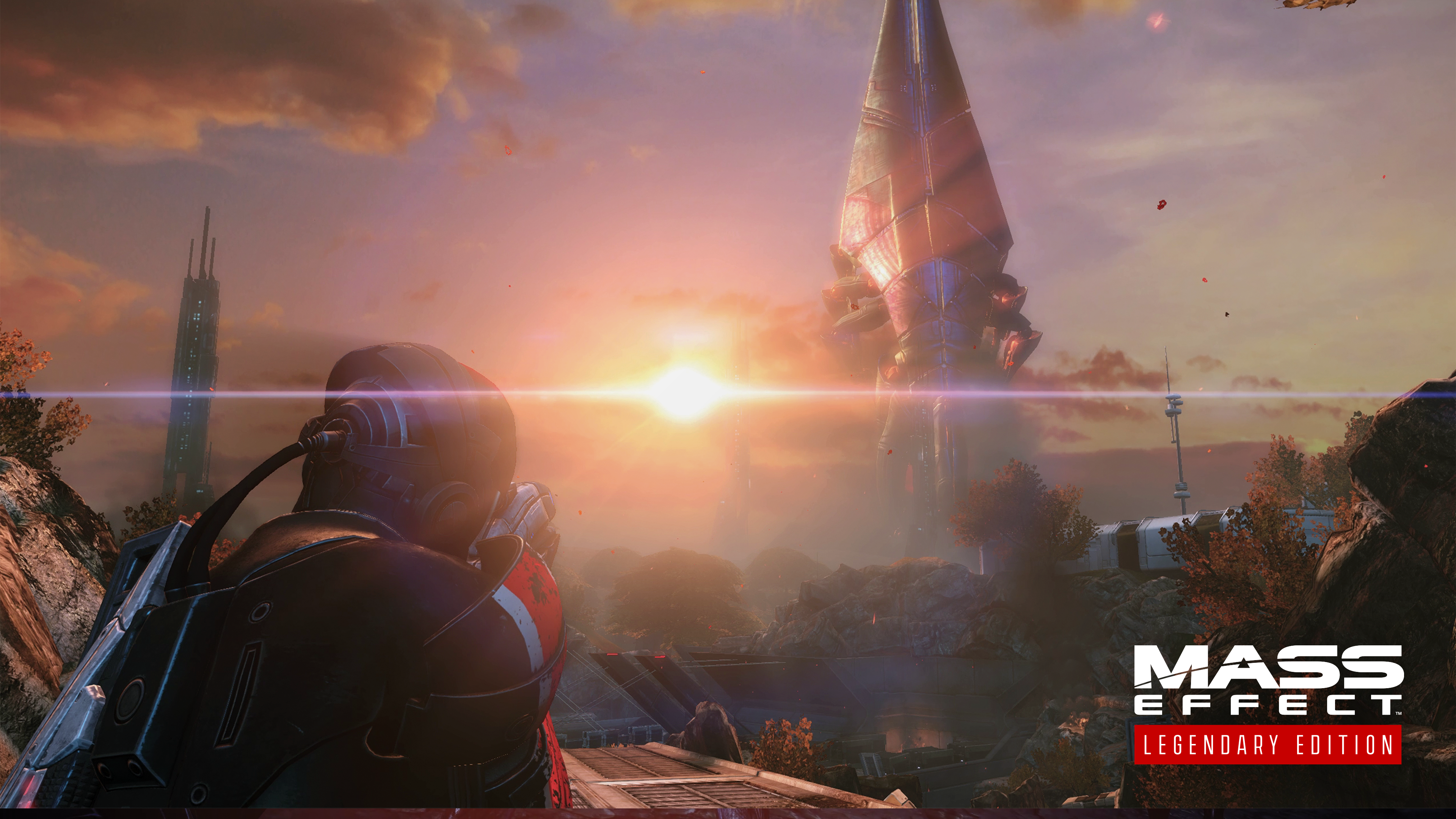
BioWare calls it a 'passion project'
Ever since the double-whammy of Mass Effect: Andromeda and Anthem, some have lost faith in BioWare. People openly say that the studio isn't what it once was, with too many key players having long-since moved on.
That kind of context seemed to underlie some of this presentation, with the various BioWare developers ensuring their bona-fides were clear. "I've been at BioWare since we were shipping KOTOR back in the day," began Mac Walters. "I didn't do much on there but I did go on to work on Jade Empire, but then in 2005 moved onto Mass Effect and honestly, except for a short stint at the beginning of Anthem and the end of Anthem, I have been all Mass Effect all the time since 2005."
"Fans have been asking for a remaster for some time. This is as exciting for someone like me as it is for our fans, when we develop a game there's always this moment of letting go," continues Walters. "The unique thing about the franchise was we could take all that developer angst and put it in the next game, then the next game [and] the opportunity now to go back with all of those lessons learned, and all the advancements and stuff we saw in the trilogy... first of all it's a dream, but ultimately it's just been a huge passion project as well. You don't get the chance to revisit a lot of these things."
Indeed. So, what are you going to do differently?

Rich is a games journalist with 15 years' experience, beginning his career on Edge magazine before working for a wide range of outlets, including Ars Technica, Eurogamer, GamesRadar+, Gamespot, the Guardian, IGN, the New Statesman, Polygon, and Vice. He was the editor of Kotaku UK, the UK arm of Kotaku, for three years before joining PC Gamer. He is the author of a Brief History of Video Games, a full history of the medium, which the Midwest Book Review described as "[a] must-read for serious minded game historians and curious video game connoisseurs alike."

